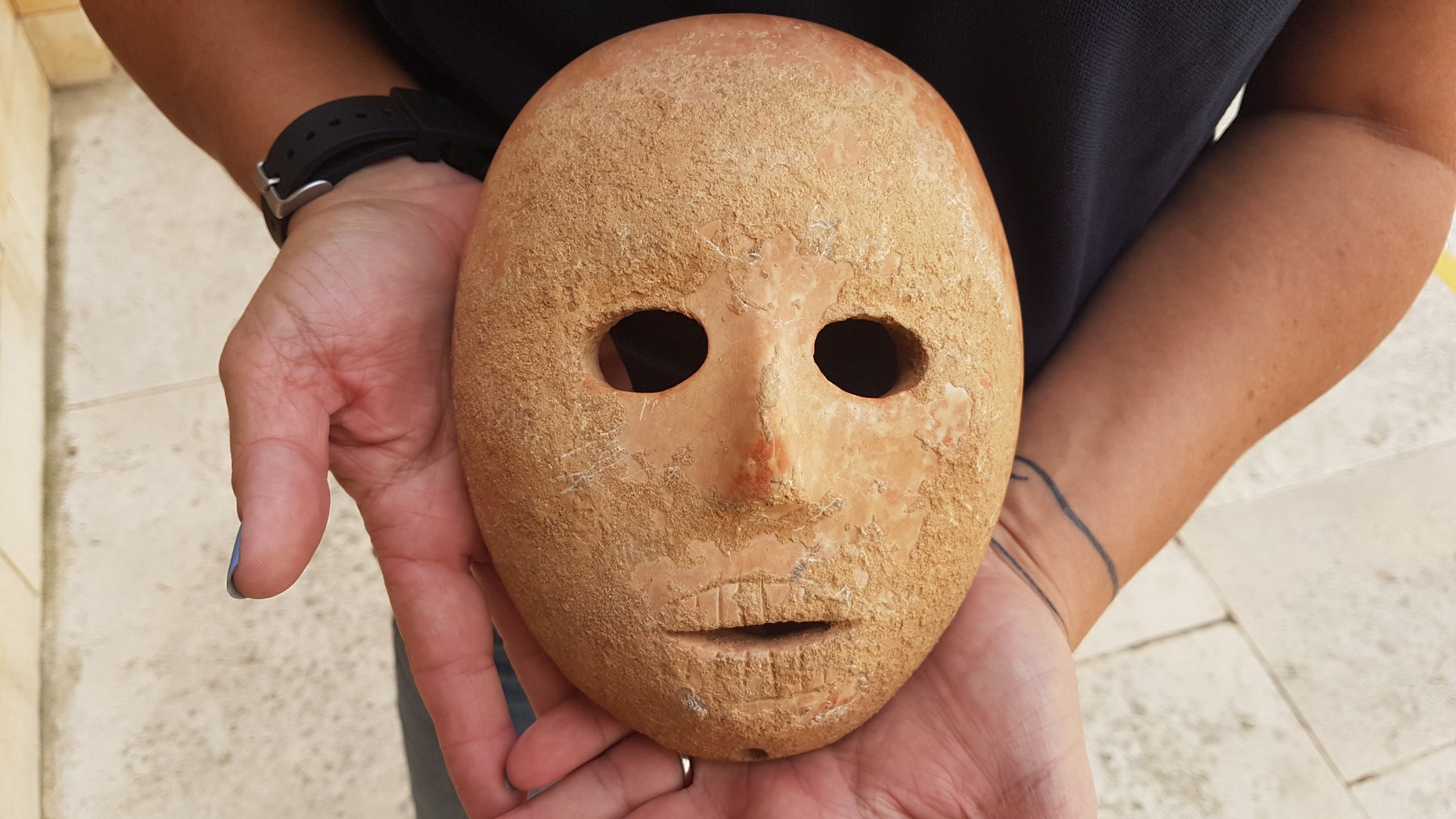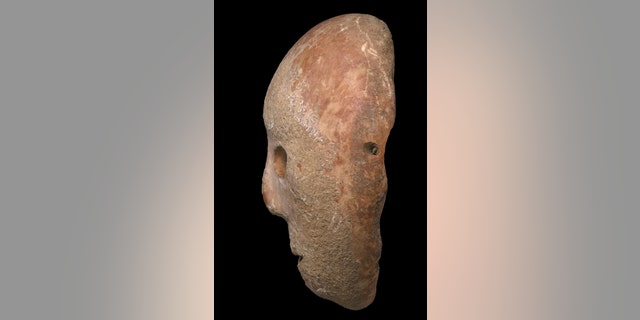
Archaeologists in Israel have announced the discovery of an extremely rare 9,000-year-old stone mask.
The mask, which dates back to the Neolithic period, was found by a settler walking in the hills south of Hebron, on the West Bank, according to Haaretz. In a statement released Wednesday, the Israel Antiquities Authority confirmed that the mask was discovered several months ago.
At the start of 2018, the IAA’s Antiques Theft Prevention Unit received information that led to the mask’s recovery.
“Discovering a mask made of stone, at such a high level of finish, is very exciting,” said Ronit Lupu of the IAA Antiquities Theft Prevention Unit, in the statement. “The stone has been completely smoothed over and the features are perfect and symmetrical, even delineating cheekbones. It has an impressive nose and a mouth with distinct teeth.”
Similar in size to a human face, the mask may be connected to ancestor worship, according to Lupu.
The artifact is now being studied by experts from the Israel Antiquities Authority and Geological Survey of Israel.
The mask is the latest fascinating archaeological discovery in Israel. A previously unknown 1,500-year-old painting of Christ’s face, for example, was recently uncovered at a Byzantine church in the Negev desert.

The mask dates back to the Neolithic period. (Clara Amit, Israel Antiquities Authority)
In a separate project, engravings of ships were found on an ancient water cistern discovered in a city in the Negev desert.
Archaeologists have also confirmed the first full spelling of “Jerusalem” on an ancient stone inscription excavated in the area of Jerusalem’s International Convention Center, known as Binyanei Ha'Uma.
In another project, experts discovered a site that may offer fresh insight into the ancient biblical kingdom of David and Solomon. In a separate archaeological dig, a trove of bronze coins, the last remnants of an ancient Jewish revolt against the Roman Empire, were recently discovered near the Temple Mount in Jerusalem.
In February, archaeologists announced the discovery of a clay seal mark that may bear the signature of the biblical Prophet Isaiah.
Other recent finds include the skeleton of a pregnant woman, dating back 3,200 years, in Israel’s Timna Valley, at a place once called King Solomon’s Mines.
At the site of an ancient city on the West Bank, archaeologists are also hunting for evidence of the tabernacle that once housed the Ark of the Covenant.
Some experts also believe they have found the lost Roman city of Julias, formerly the village of Bethsaida, which was the home of Jesus' apostles Peter, Andrew and Philip.
No comments